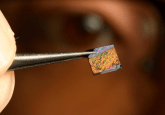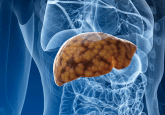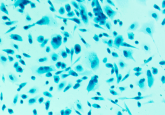Are sugars the key to an early, accurate prostate cancer test?

Researchers from the University of Birmingham (UK) are in the process of developing a new blood test that could help to detect prostate cancer. The test, which uses complex sugars called glycans, could facilitate earlier and more accurate prostate cancer detection.
The test undergoing development detects glycans in the blood. In the blood, glycans are attached to prostate-specific antigen (PSA). When cancer is present, PSA is known to undergo subtle changes. Although specific glycans are associated with different cancers, current detection techniques are limited by inadequate specificity and throughput.
Research from the University of Birmingham, published in Advanced Functional Materials, details the development of a highly accurate technique capable of detecting cancer-associated glycans.
The technology, now patented by University of Birmingham Enterprise (UK), uses specific synthetic glycan recognition sites which are incorporated into a material surface. The recognition sites display binary on-off binding behavior and are capable of distinguishing specific glycans over closely related carbohydrate structures.
The high specificity comes as a result of the ability to efficiently generate pure high order complexes of the glycan target, in which the spatial arrangement of several receptors in the complex is maintained when it is incorporated into the material surface.
Lead author, Paula Mendes (University of Birmingham, School of Chemical Engineering) explained: “What is really exciting about the technique we’ve developed is the ability to pinpoint glycans with such specificity. A PSA molecule can have 56 different sugars attached to it, but only four are associated with prostate cancer. With this test, we’re able to identify those four with certainty.”
You might also like…
Current PSA tests are limited by a lack of specificity, capable only of detecting elevated PSA levels. Blood PSA levels can become elevated for a variety of noncancer-related reasons, giving false positive results in approximately 50% of cases. Furthermore, in approximately 25% of individuals with prostate cancer, PSA levels are not elevated.
Mendes explained: “Many patients undergoing the PSA test will be falsely diagnosed, causing them be sent for further, more invasive tests, and this places a lot of stress on the patient, as well as being very expensive for health services. Just as worrying, many men have low levels of PSA that do not show up well in tests. By measuring the glycans, however, we can offer diagnoses that are much more precise, not only detecting cancer at an earlier stage, but identifying how aggressive it is too.”
The team hopes to begin applying the technique to clinical samples towards the end of 2020. Furthermore, the technique used to generate the synthetic binding targets can be tailored to allow the recognition of a wide variety of glycoconjugates and oligosaccharides, giving rise to many potential diagnostic and life sciences applications.
Sources: Tommasone S, Tagger YK, Mendes PM. Targeting oligosaccharides using superselective binding scaffolds. Adv. Funct. Mater. doi:10.1002/adfm.202002298 (Epub ahead of print)(2020); www.birmingham.ac.uk/news/latest/2020/05/sugars-could-be-the-key-to-an-earlier-more-accurate-test-for-prostate-cancer.aspx






